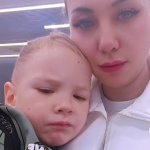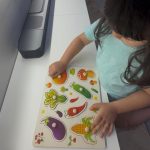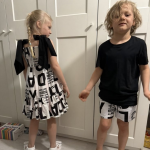Autism and Obsession with Toy Cars
Many children, especially boys, show an interest in toy car models. This trait is also common among autistic children, but in their case, collecting is not just driven by the emotions typical of their peers — it is closely linked to certain features of their perception and thinking.
- Need for Systematization and Order
The need for structure and organization often leads autistic children to feel more comfortable in a well-ordered environment. Collecting helps them:
• create clear categories (brands, models, colors);
• organize objects according to specific rules (by size, year of release, etc.);
• track the condition of their collection and its expansion, which helps reduce anxiety. - Sensory Appeal
Sensory perception also plays a role in their attraction to collecting models.
• Toy cars often have smooth surfaces, are pleasant to the touch, and feature bright colors — all of which may appeal to children with heightened sensory sensitivity.
• Some enjoy spinning the wheels, lining the cars up in rows, or arranging them in a particular order — such routines provide comfort and a sense of predictability. - Presence of Special Interests
Autistic children often develop strong interests in specific topics that fully capture their attention. These may include:
• transportation (cars, trains, airplanes);
• specific brands or models of any type of machinery;
• mechanisms and how they work.
Collecting allows them to explore these areas in depth and find enjoyment in the process. - Repetitive Actions and Rituals
The repetitive behaviors and routines associated with forming a collection can have a calming effect. Such behaviors may include:
• arranging toy cars in a particular sequence;
• counting them;
• driving them along the same path repeatedly. - Development of Social Communication Skills
Even when children struggle with social interaction, collecting can serve as:
• a conversation starter if the child wishes to share knowledge;
• a means of engagement (for example, playing together with parents).
How Parents Can Support the Hobby
Regardless of what a child is passionate about, parents should stay involved — not only to monitor the hobby, but also to use it for developmental support. Parents can:
• encourage the interest while making sure it doesn’t become an obsession;
• use the collection for educational purposes — such as learning colors, counting, or transportation history;
• help organize the space — arranging shelves together or creating photo albums of the cars;
• gradually broaden the child’s interests, where possible.
For a child with autism, collecting isn’t just a pastime — it’s a vital part of their world that provides safety and joy. However, despite the benefits of the hobby, their perception of the world remains distorted due to the underlying neurodevelopmental condition. There is, however, a way to help a child overcome both autism and its symptoms.
Cell therapy offers the most effective and rapid solution to date. It is safe and has almost no contraindications, as it uses stem cells taken from the patient’s own body, eliminating the risk of rejection. Moreover, this procedure is highly natural, as it works by stimulating the body’s innate regenerative abilities.
The therapy is based on the unique ability of stem cells to transform into any other type of cell. Once transformed, they replace malfunctioning cells with healthy ones. As a result, the brain and nervous system begin to function as nature intended, behavior stabilizes, overall development accelerates, school performance improves, and symptoms become less pronounced — or may disappear entirely. These improvements often last for many years, or even a lifetime, making other forms of therapy much more effective.
Though initially viewed as experimental, cell therapy has now gained widespread acceptance and may soon become the primary method of treating autism and its symptoms. It is currently practiced in leading clinics around the world, including the Mardaleishvili Medical Center, which has documented many successful outcomes. Their doctors have extensive experience, supported by cutting-edge medical equipment that allows them to achieve the best possible results for patients.
The center provides care that meets the highest international standards while offering more affordable treatment than in many other countries with advanced healthcare systems. An additional practical benefit is the support offered for planning the trip and solving logistical matters, including accommodation during the rehabilitation period.
Cell therapy — a way to give your child a happy childhood!
Autism Treatment Center Videos
Autism treatment with own stem cells
Cord blood association congress
International Quality Crown
Autism Treatment Reviews
Autism treatment with own stem cells
The story of Alessandro (6 years old)
Autism Patient Testimonial - Stem Cell Treatment
Clients Testimonials

Lidiya — Elina’s mother Read More

Anna – Sasha’s mother Read More

Amirkhon’s father — Tokhir Read More

Dilana’s mother Read More

Irina and Stefan – Ilya’s parents Read More












